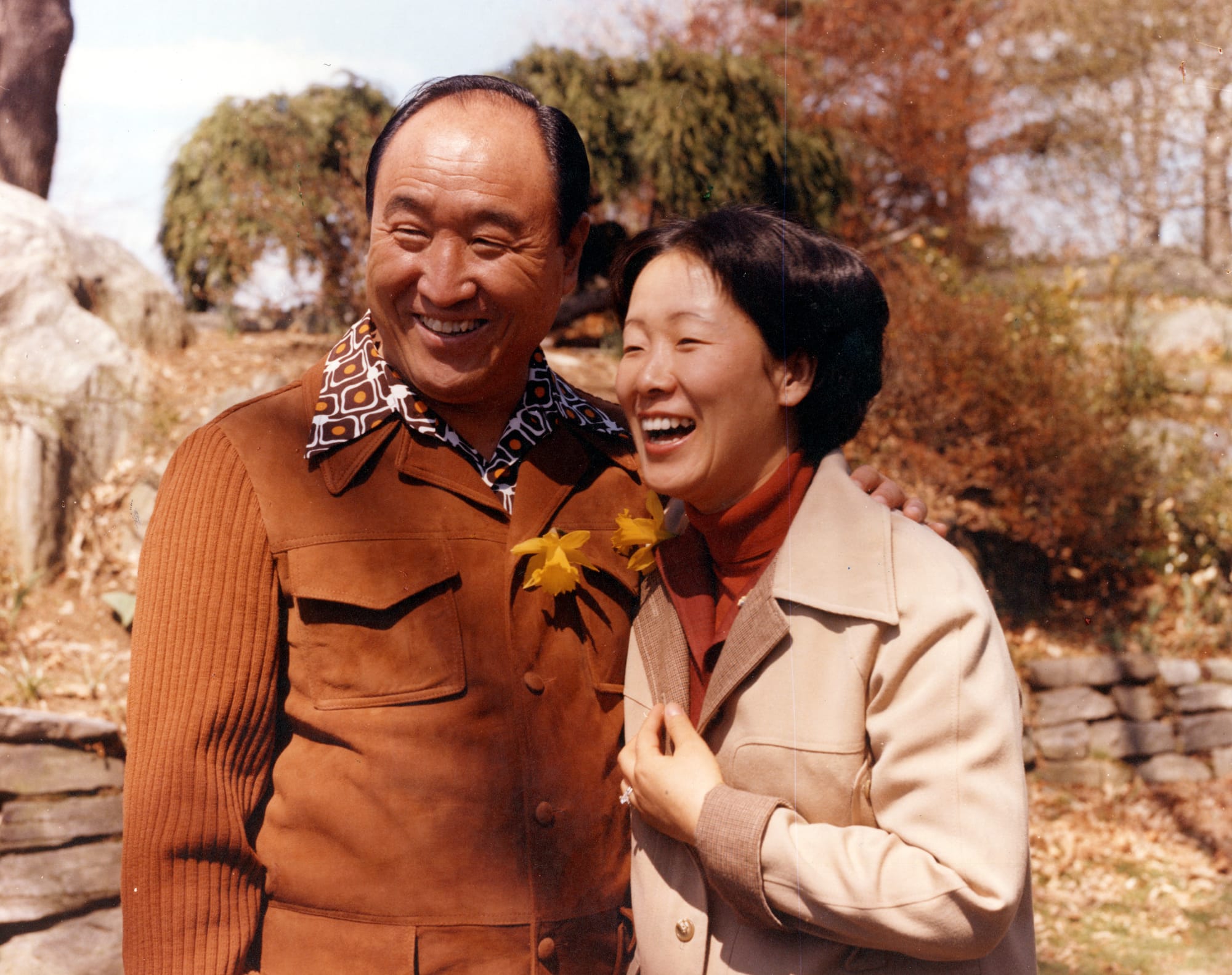The spiritual life that begins with Faith and Devotion to God finds its completion in deeds of loving-kindness and service to others: “We love because he first loved us.” (1 John 4.19) Living for the sake of others is love’s fundamental ethic.
Living for others is a natural expression of a loving heart that flows spontaneously from a person’s inner being. This is because human beings take after God, who from the moment of creation has continually been living for the sake of His creatures.
Nevertheless, due to the fall, human nature became corrupted. Misunderstanding love as a matter of personal pleasure disconnected from the divine source, our minds, attitudes and habits became self-centered.
Hence many people find it quite an effort to serve others without the expectation of some sort of payback. We have created a society of takers, not givers, leading inevitably to inequality, resentment and crime.
Passages from all the world’s faiths recommend service and living to benefit others as the supreme way of life in this world. Jesus identifies service as the most authentic way of leadership and exemplified it in his own life as one who came “not to be served, but to serve.”
Moreover, some texts, notably the Bhagavad Gita and the Tao Te Ching, identify it as the fundamental principle by which God creates and sustains the universe. Every selfless act in the service of others is an act born of God.
Father Moon has much to say on this topic, affirming the life of living for the sake of others as the lifestyle of the Kingdom.
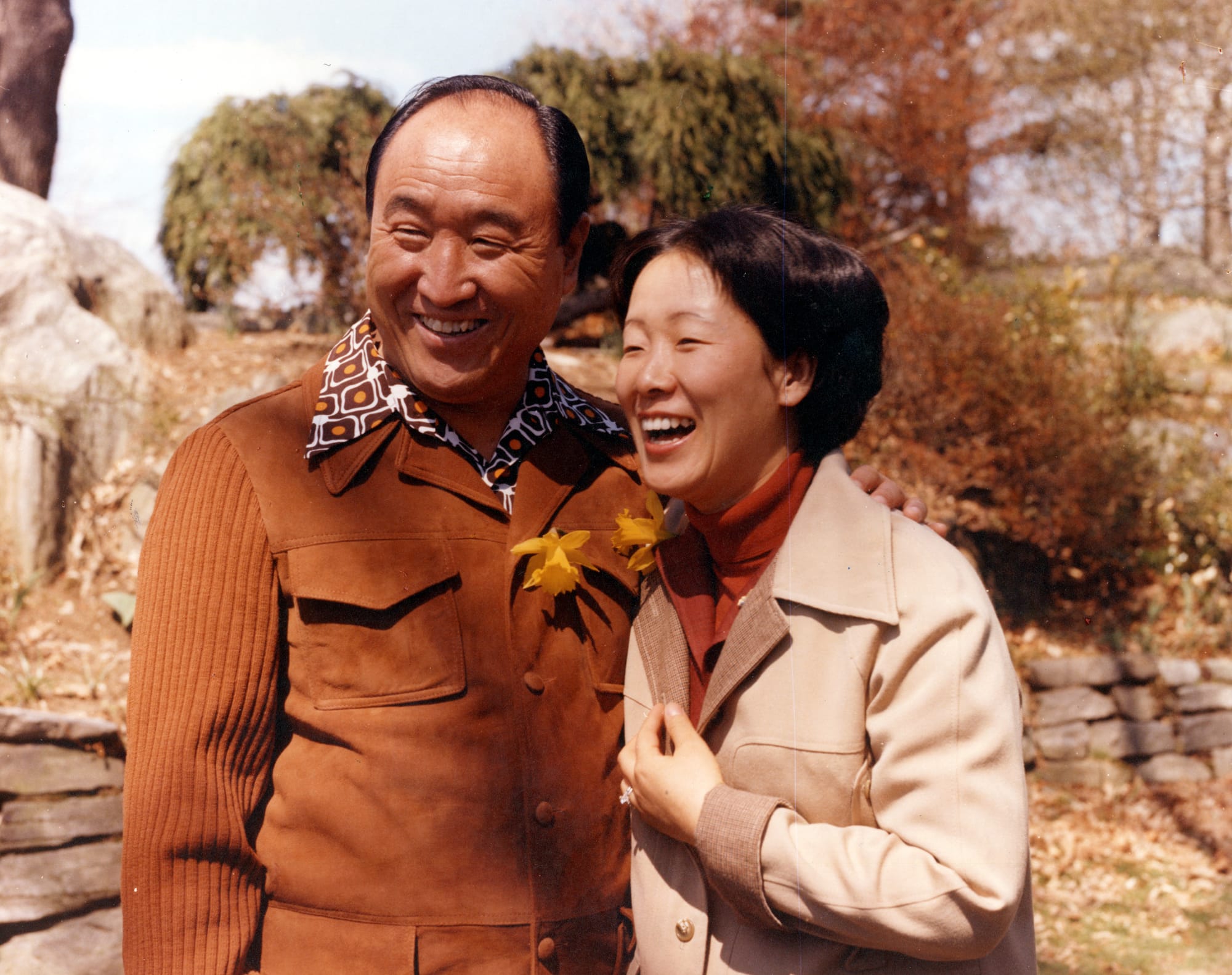
Helping Others and Caring for Others Is the Fundamental Ethic of Human Life
Bear one another’s burdens, and so fulfill the law of Christ. Galatians 6.2
Rendering help to another is the function of all human beings. Tattvarthasutra 5.21 (Jainism)
All men are responsible for one another. Talmud, Sanhedrin 27b (Judaism)
The best of men are those who are useful to others. Hadith of Bukhari (Islam)
Let no one seek his own good, but the good of his neighbor. 1 Corinthians 10.24
Above all hold unfailing your love for one another, since love covers a multitude of sins. Practice hospitality ungrudgingly to one another. As each has received a gift, employ it for one another, as good stewards of God’s varied grace. 1 Peter 4.8-10
Be kind to parents, and the near kinsman, and to orphans, and to the needy, and to the neighbor who is of kin, and to the neighbor who is a stranger, and to the companion at your side, and to the traveler, and to [slaves] that your right hands own. Surely God loves not the proud and boastful such as are niggardly, and bid other men to be niggardly, and themselves conceal the bounty that God has given them. Qur’an 4.36-47
Until now each and every one throughout the world has been concerned only with himself. How pitiful it is! You have no mind to help others, however hard you may think it over. Henceforth, ceaselessly strive to restore your mind! I, God (Tsukihi), request it from you all equally. If you ask what kind of mind it is, it is the mind to save single-heartedly all people of the world. Henceforth, if only all people of the world equally help each other on any and every matter, believe that I will accept your minds and will work any and every kind of salvation! Ofudesaki 12.89-94 (Tenrikyo)
Do not seek to benefit only yourself, but think of other people also. If you yourself have abundance, do not say, “The others do not concern me, I need not bother about them!” If you were lucky in hunting, let others share it. Show them the favorable spots where there are many sea lions that can be easily slain. Let others have their share occasionally. If you want to amass everything for yourself, other people will stay away from you and no one will want to be with you. If you should one day fall ill, no one will visit you because, for your part, you did not formerly concern yourself about others. Grant other people something also. The Eskimo do not like a person who acts selfishly. Yamana Eskimo Initiation (Native American Religions)
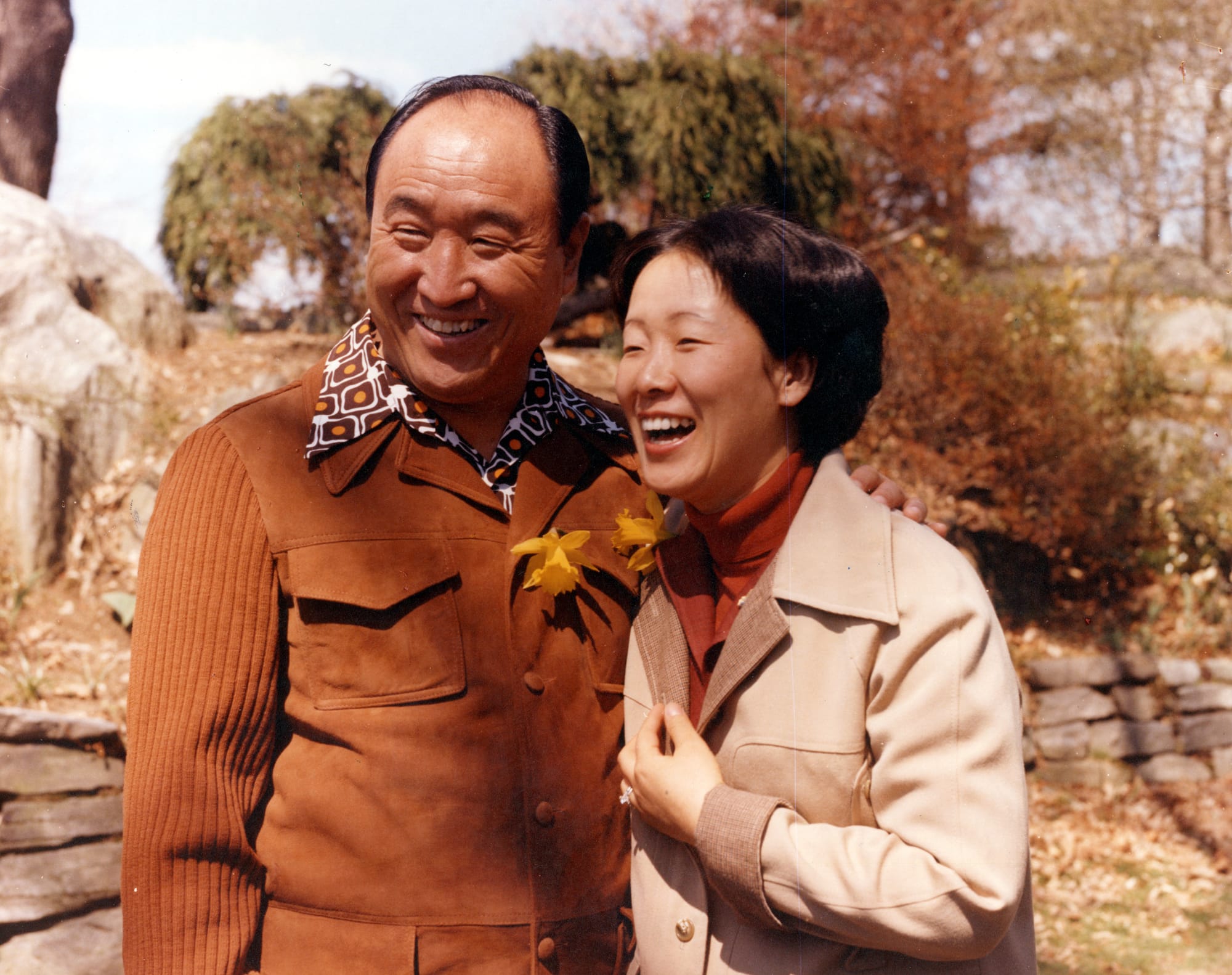
Teachings of Sun Myung Moon
The essence of love is to live for the sake of others instead of waiting for others to serve you. This is different from what passes for love in the secular world.
Therefore, religion teaches to live for the sake of others—to be obedient, to serve and to sacrifice. (46:42, July 18, 1971)
Altruism—investing oneself for others, for the nation and for the world, living a life of sacrifice and service to others—may be considered by today’s society to be a most foolish philosophy of life.
As you come to understand the deepest truths, however, you will understand that altruism is the secret to living in eternal happiness and the way most beneficial to human beings. (198:163, February 1, 1990)
It is a principle that those who invest themselves for the sake of others and live for the sake of their partners will go to heaven. Because educational philosophies and cultural traditions throughout history have taught this idea, the planet Earth has been preserved at least to its current extent. (69:86, October 20, 1973)
The way of true love can never be found without a partner to live for. (398:284, December 15, 2002)
Live a broad and grand life on earth to be on the track to heaven. Live for others. Invest repeatedly and forget what you have invested. Love and forget, and continue to love infinitely because you were born to live for others. (306:215, September 23, 1998)
Who is a good person? Not someone who wishes that others would obey him. No, a good person is one who lives for the whole. Don’t family members agree on who is the most promising and best-nature child in the family? From grandparents to cousins, if you ask them they will say, “Yes, that one gives the most.”
Undoubtedly, that child is not the one who always asks his grandfather to please him. Rather, although he is a little child, he always considers how to behave and how to serve in order to make his grandfather happy.
Day and night he tries to help all his family members, even cousins and in-laws. That child is undoubtedly a grandson on whom the family can place great hope. (174:11-12, February 23, 1988)
The universe was created by investing, based on love for the sake of others. Hence, when a person lives for the sake of others, he aligns himself with the original activity of creation, and this brings him into oneness with God.
This person will not perish because God will never perish. He will surely become the owner of the universe because God is the Owner of the universe. Seen this way, it is clear that the person who lives for the sake of others becomes a central figure. (270:165, May 29, 1995)
I know that the American people respect individualism. However, individualism that lost sight of relationships between subject and object partners cannot endure. That is why America has reached a blind alley.
How can we save America?
We have to remind her of the essence of the Christian life, which is God’s original way of life. There is no other way. In this sense, even though you do not welcome Reverend Moon, you need him.
He teaches God’s principle: You individuals should live for your families, families for your communities, communities for your nation, your nation for the world, and the world for God. (69:88, October 20, 1973)
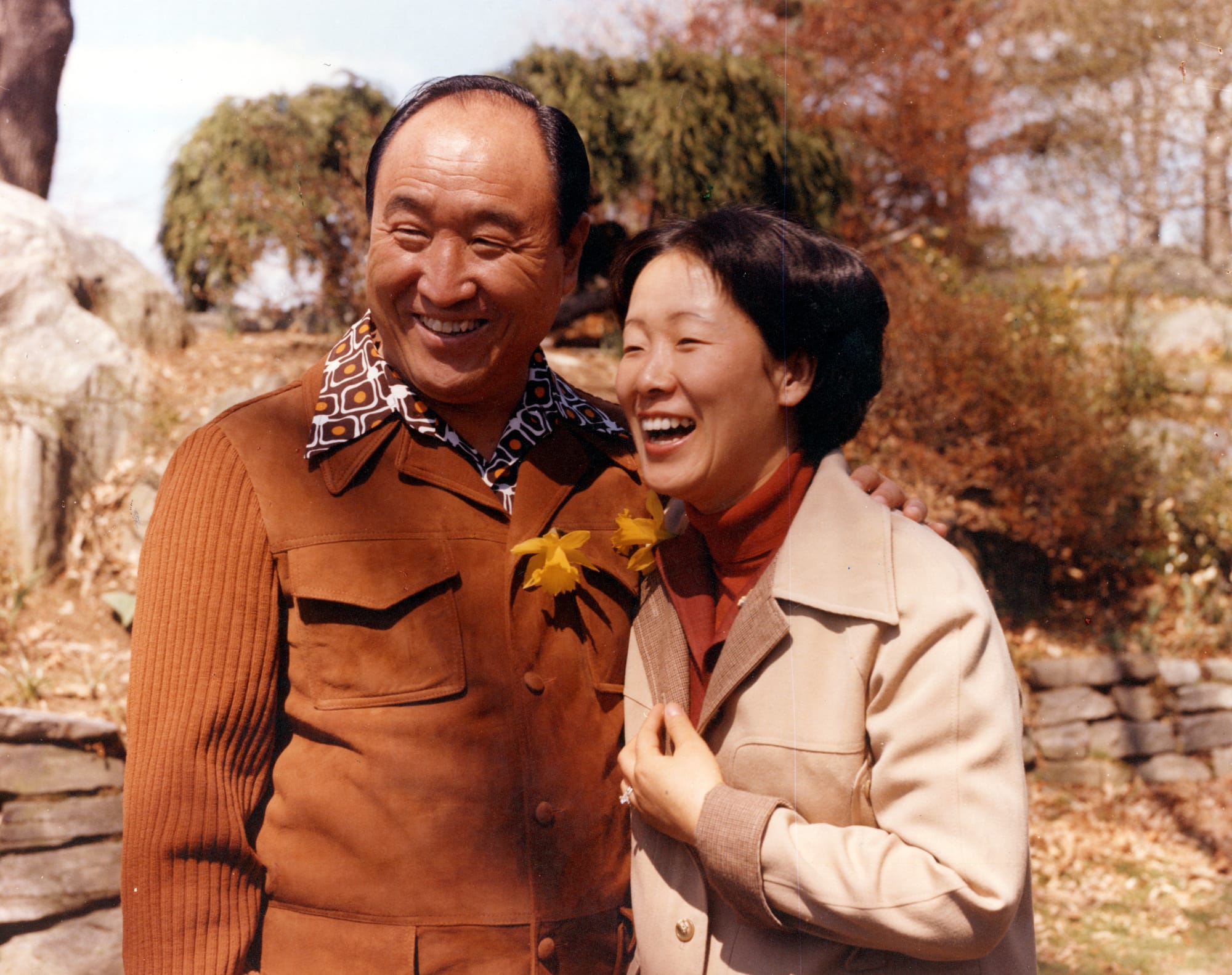
Serve Others without Demanding Anything in Return
Jesus said, “You know that the rulers of the gentiles lord it over them, and their great men exercise authority over them. It shall not be so among you, but whoever would be great among you must be your servant, and whoever would be first among you must be your slave.” Matthew 20.25-27
Without selfless service are no objectives fulfilled; In service lies the purest action. Adi Granth, Maru, M.1, p. 992 (Sikhism)
One who serves and seeks no recompense Finds union with the Lord. Such a servant alone takes the Master’s guidance, says Nanak, As on him is divine grace. Adi Granth, Sukhmani 18, M.5, pp. 286f. (Sikhism)
When you are in the service of your fellow beings you are only in the service of your God. Book of Mormon, Mosiah 2.17 (Latter-day Saints)
The sage does not accumulate for himself. The more he uses for others, the more he has himself. The more he gives to others, the more he possesses of his own. The Way of Heaven is to benefit others and not to injure. The Way of the sage is to act but not to compete. Tao Te Ching 81 (Taoism)
Unlike material possessions, goodness is not diminished when it is shared, either monetarily or permanently, with others, but expands and, in fact, the more heartily each of the lovers of goodness enjoys the possession the more does goodness grow.
What is more, goodness is not merely a possession that no one can maintain who is unwilling to share it, but it increases the more its possessor loves to share it.” Saint Augustine, City of God 15.5 (Christianity)
Do nothing from selfishness or conceit, but in humility count others better than yourselves. Let each of you look not only to his own interests, but also to the interests of others. Philippians 2.3-4
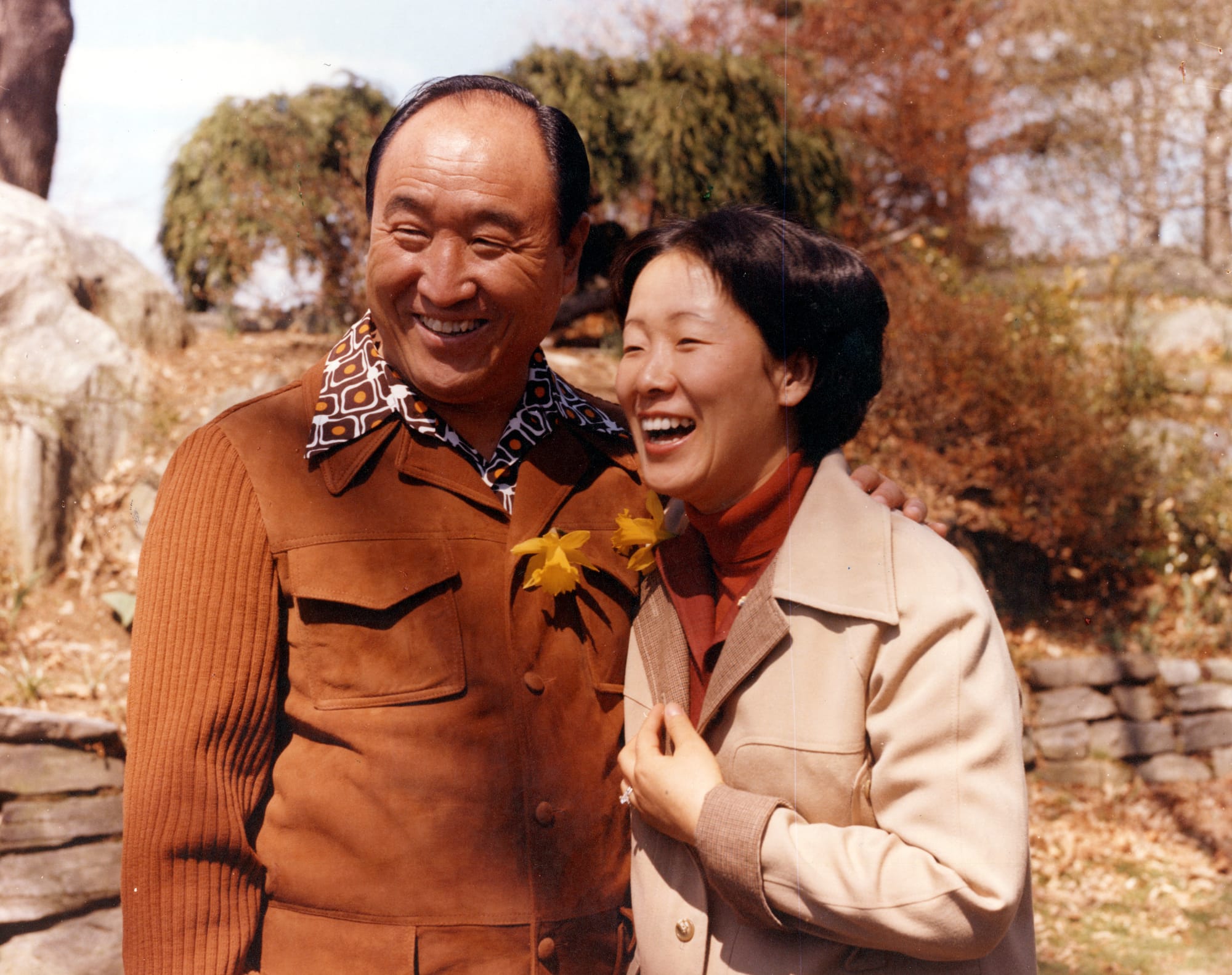
Teachings of Sun Myung Moon
The blessing of all blessings is to give sacrificial love and service for the sake of others. (43:309, May 2, 1971)
Regardless of sex or age, everyone is longing for love. What kind of love? Love that is for the sake of others, not love that demands others love them. (211:206; December 30, 1990)
Do not think selfishly that you should receive love. A loving heart always seeks to sacrifice and yield to others, and after giving wants to give still more. That is God’s heart.
For example, if I had one billion dollars and gave it all away to the poor on the streets, my mind would not be at ease. I would regret that I did not have more money to give away to help every human being in need. (133:180, July 10, 1984)
What is God’s love? It is a love that is not satisfied with what it has given. It feels ashamed because it wanted to give more. If you give your utmost and still feel ashamed that you could not give more, then you are an owner of true love. A loving parent feels anxious that she could not buy better clothes for her children, so she supplements the deficiency with love.
Therefore, love that was given in scarcity is returned in abundance. Love does not diminish when it is spent, but flourishes because it is supplemented by something bigger. Therefore, nothing prospers without love. Eternal life does not exist without love. (38:327-28, January 8, 1971)
What is the essence of love?
It is living for others. It is giving to others—giving from a desire arising out of our own free will. Where did that love originate? It originated from God. God is the Subject of absolute love, and giving is the essence of His love. We can see the essence of love in parental love.
The child may spurn the parent, rebel and turn to evil, yet if the parent loves him even more than before, the child will repent. If the parent were to scold the child, saying, “I loved you so much, even breaking my back for you, you ungrateful brat!” then after three such scoldings the child might run away.
But suppose that parent repents in tears, standing in front of the child and saying, “It is my fault for not loving you more.” Don’t you think that child would turn around? Greater love has the power to digest and unite lesser love. (48:182, September 12, 1971)
Let me explain with several illustrations why God made the principle of living for others.
First, let me ask you a question. If someone truly loves you and sacrifices for you 100 percent, would you want to return only 50 percent, keeping the other 50 percent in your pocket?
Or would you want to give more, even everything you have? Which is in accordance with your original conscience? The answer is, you would want to return more than you receive. Here is Mr. Pak translating for me.
If I give him 100 percent true love, and he knows this, then he will return more than 100 percent. So 100 percent is returned as 110 percent. After you receive 110 percent, in response to his sincerity, you would give again 120 percent. In this way the concept of eternity comes about.
That’s why God set up this principle—as the basis of eternity. It makes development and prosperity possible. Second, if among five people in a family there is one who lives for the sake of the family, eventually he or she will become the center of that family. When he or she is established as the center, subject-object relationships are formed.
This creates a realm of voluntary dominion. People today don’t understand how happy it would be to be ruled by a subject who lives absolutely for his or her objects. You can never imagine how glorious it is to be under the direct dominion of God in the spirit world. This is the true subject-object relationship.
Third, we know that love and ideals are more precious than life itself, yet we tend to think we produced them and they belong to us. This is a big misunderstanding.
Love and ideals come from your partner. Because they come from your object, the principle of living for others is necessary. God, the King of Wisdom, knows all of this, so He made this principle. (73:326-27, August 10, 1974)
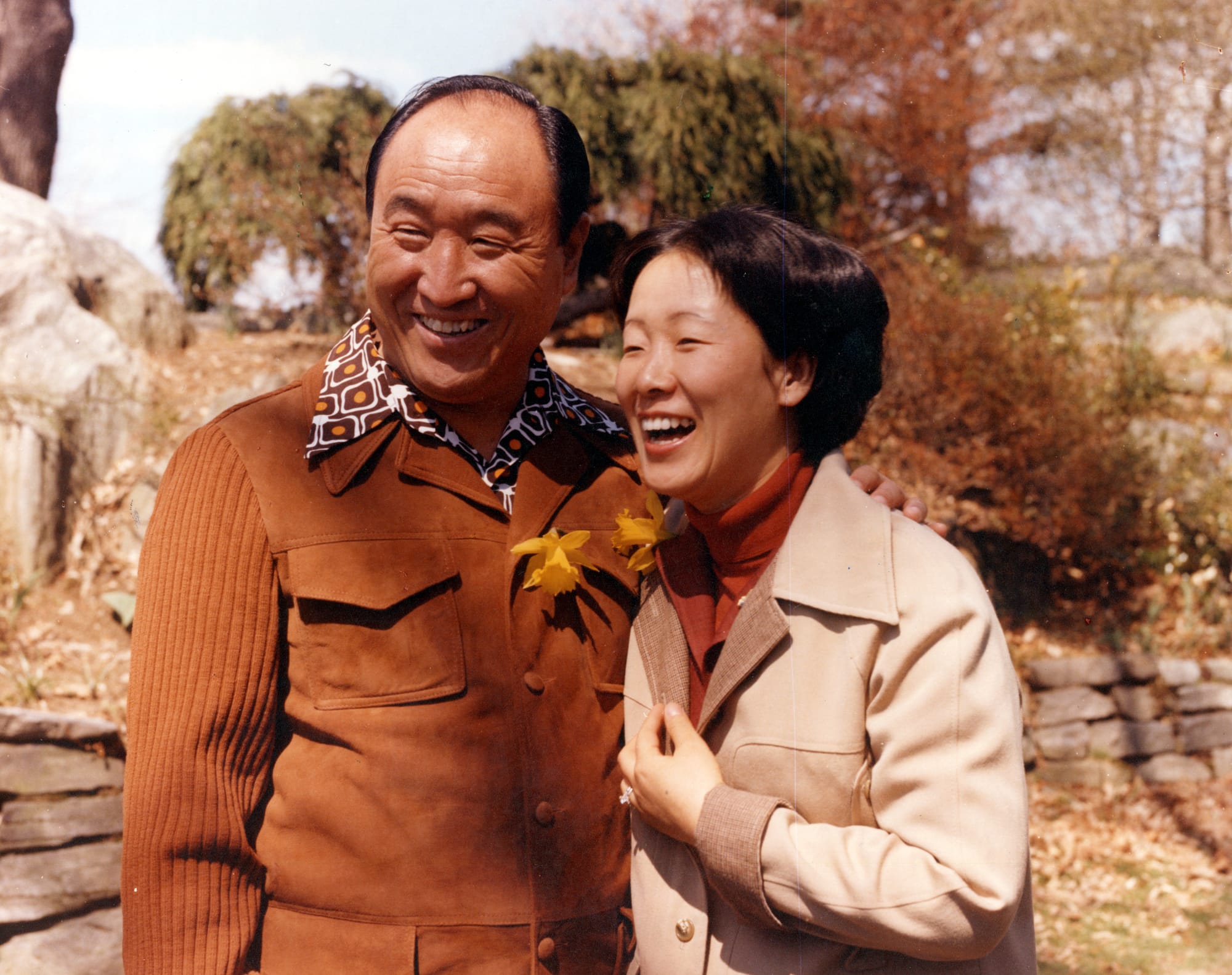
In Creating the Universe, God Gave Everything for the Sake of His Creations
We love, because he first loved us. 1 John 4.19
Heaven is eternal and Earth everlasting. They can be eternal and everlasting because they do not exist for themselves, And for this reason can exist forever. Therefore the sage places himself in the background, but finds himself in the foreground. He puts himself away, and yet he always remains. Is it not because he has no personal interests? This is the reason why his personal interests are fulfilled. Tao Te Ching 7 (Taoism)
At the beginning, mankind and the obligation of selfless service were created together. “Through selfless service, you will always be fruitful and find the fulfillment of your desires”: this is the promise of the Creator….
Every selfless act, Arjuna, is born from the eternal, infinite Godhead. God is present in every act of service. All life turns on this law, O Arjuna. Whoever violates it, indulging his senses for his own pleasure and ignoring the needs of others, has wasted his life. But those who realize the God within are always satisfied. Having found the source of joy and fulfillment, they no longer seek happiness from the external world. They have nothing to gain or lose by any action; neither people nor things can affect their security. What the outstanding person does, others will try to do. The standards such people set will be followed by the whole world. There is nothing in the three worlds for Me to gain, Arjuna, nor is there anything I do not have; I continue to act, but I am not driven by any need of my own. If I ever refrained from continuous work, everyone would immediately follow my example. If I stopped working I would be the cause of cosmic chaos, and finally of the destruction of this world and these people. Strive constantly to serve the welfare of the world; by devotion to selfless work one attains the supreme goal in life. Do your work with the welfare of others always in mind. It was by such work that Janaka attained perfection; others, too, have followed this path. The ignorant work for their own profit, Arjuna; the wise work for the welfare of the world, without thought to themselves. By abstaining from work you will confuse the ignorant, who are engrossed in their actions. Perform all work carefully, guided by compassion. Bhagavad-Gita 3.10-26 (Hinduism)
The threefold offspring of Prajapati—gods, men, and demons—dwelt with their father Prajapati as students of sacred knowledge.7 Having lived the life of a student of sacred knowledge, the gods said, “Speak to us, sir.” To them then he spoke this syllable: “Da.” “Do you understand?” “We understand,” said they. “You said to us, ‘Restrain yourselves (damyata).’” “Om,” said he. “You do understand.”
Then the men said to him, “Speak to us, sir.” To them he spoke this syllable: “Da.” “Do you understand?” “We understand,” said they. “You said to us, ‘Give (datta).’” “Om,” said he. “You do understand.” Then the demons said to him, “Speak to us, sir.” To them he spoke this syllable: “Da.” “Do you understand?” “We understand,” said they. “You said to us, ‘Be compassionate (dayadhvam).’” “Om,” said he. “You do understand.” The same thing does thunder, the divine voice, here repeat, “Da! Da! Da! Restrain yourselves. Give. Be compassionate.” One should practice this same triad: self-restraint, giving and compassion. Brihadaranyaka Upanishad 5.2.2: The Voice of Thunder (Hinduism)

Teachings of Sun Myung Moon
What kind of being is God?
God acts according to the law of priority of the universal and public. It requires that every being act to benefit the greater whole ahead of its own existence. Living by that law means to embody the spirit of sacrifice and service. (105:99, September 30, 1979)
Love is to invest oneself 100 percent. Out of love, when God created heaven and earth He invested Himself 100 percent. That is why true love starts from living for the sake of others. (189:202, April 6, 1989)
When God created humans beings as His partners of love, He was living for their sake. Therefore, human beings are meant to model after God and live for the sake of others.
However, due to the Fall, we came to live for ourselves. The philosophy of living for the sake of others is based on the fact that all love comes from one’s partner. (149:273, November 27, 1986)
Parents invest and forget for the sake of their children, a husband invests and forgets for the sake of his wife, and a wife invests and forgets for the sake of her husband. Siblings, too, invest and forget.
God envisioned this standard of love at the beginning of creation, which He founded to manifest His ideal of love. (253:66, January 7, 1994)
God created the universe by investing Himself. Since God invested Himself completely, the complete result was guaranteed. As this is the principle of creation, we likewise should invest ourselves completely and sincerely.
By giving sincerely you find your future object, build your foundation, and create the circumstances in which you can succeed. All this is impossible by merely receiving. The principle of creation is to live for others. (82:323, February 1, 1976)
God’s act of creation required an investment of energy. The act of creating consumes energy. How much did God invest? You read the Bible, and you think that everything was created easily according to the Word of God, “Let there be… and it was.” It was not that way. Rather, God completely invested His true life, true love, and true ideal in His creations.
Hence, there was a difference between the situation before the creation and after God finished His creation. Before the creation, the God only thought of Himself. After God created, He entered the age of existing for the sake of His object partners… In this way, my existence is no longer for own benefit. Instead, I exist for the sake of my partner.
Parents exist for the sake of their children. Because words such as “love” and “ideal” presume the existence of a counterpart, the origin of ideal existence does not begin at the position where we exist for our own sake but where we exist for the sake of our partner.
This is the reason God invested completely in creating His partner. God wanted to create an object partner of greater value, more complete, and ideal.
After creating Adam and Eve, God determined that He would exist for their sake.
He made the transition from living for Himself to living for the sake of His partner.
For this reason, we cannot hope to attain our ideal as long as we put ourselves first.
We can attain our ideal only by living for the sake of others, especially for the sake of our partner. This principle stems from the origin of the universe. (69:82-83, October 20, 1973)
